Image above: © Ashley Comer
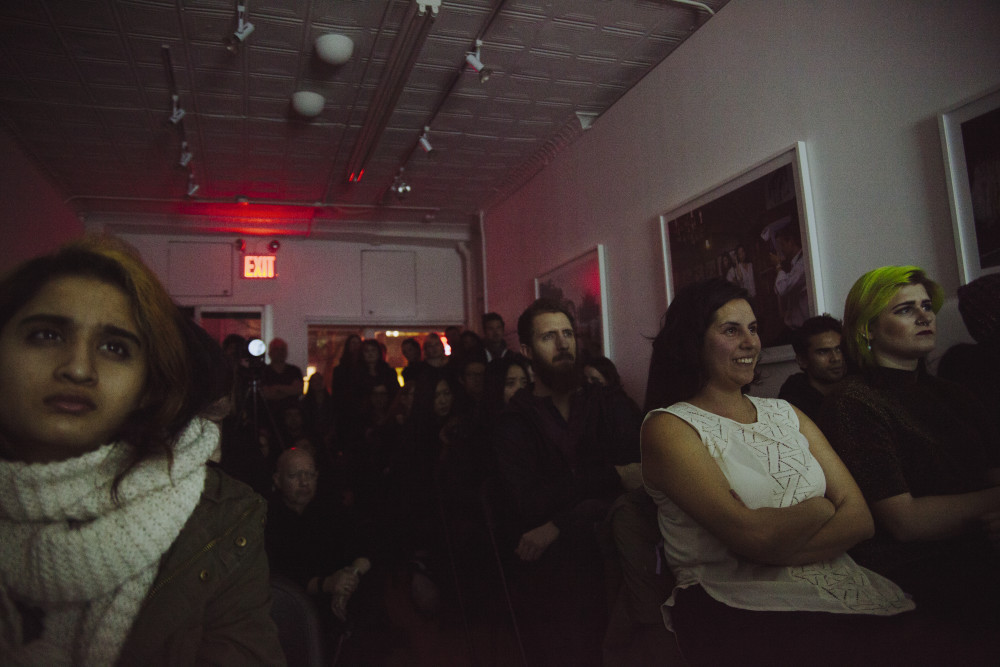 Image above: © Ashley Comer
Image above: © Ashley Comer
Crammed into a room, scattered on the ground, seated on hot radiators and standing all around; the Baxter St. Camera Club of New York welcomed a timid yet substantial crowd for a night of selfie-talk on Thursday 3rd. Jen Davis and Tommy Kha joined forces to discuss their new books, Eleven Years and A Real Imitation respectively. Each artist has explored and redefined their use of self-portraiture through their uniquely personal perspectives.
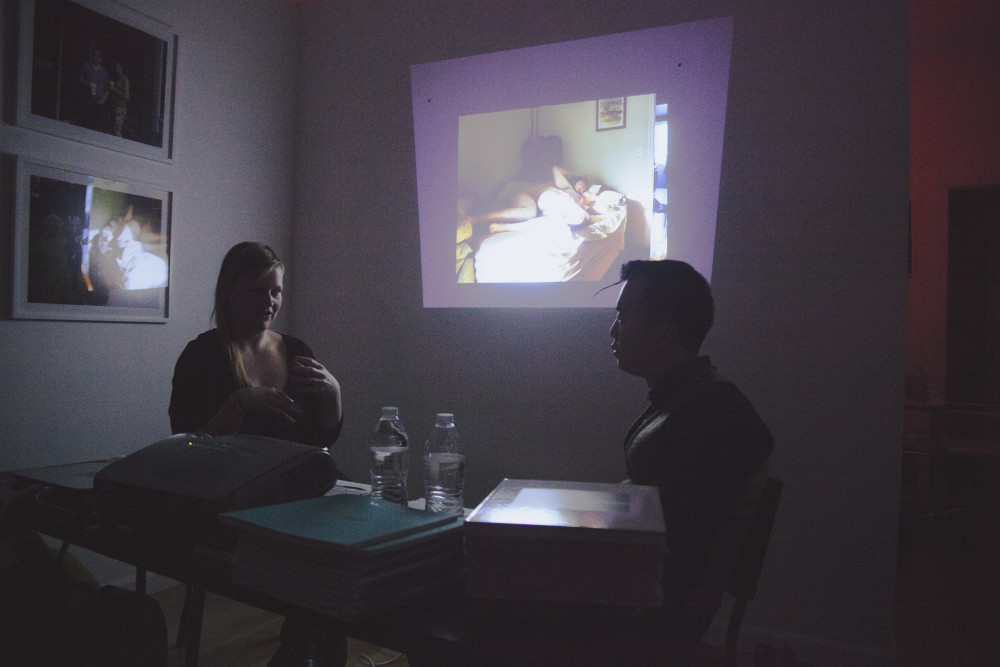 Image above: © Ashley Comer
Image above: © Ashley Comer
Jen Davis started this project with the intention of creating a voice for herself, by dissecting her identity under the microscopic view of the camera. She began modeling her own portraits eleven years ago - hence the title of her book - at a time when she felt a great deal of “discomfort and abundance” in her everyday life. Exploring both public and private spaces, such as beaches and her personal home, she began unraveling and examining herself through the image-making process.
Throughout the eleven years of documentation, her themes evolved, paralleling her own personal development and identity. Her work often deals with intimacy and sexuality in her personal life, both when it was lacking and abundant. Naturally, the work mirrors her life and personality perfectly, often playing the role of an emotive journal. The work also showcases her physical struggles and triumphs. At Baxter, she explains that her approach towards photographing herself transformed as her confidence and body changed. Her then staged intimacy shots with men, became documentations of her real relationship, post sexual awakening. Although the photographs were not produced periodically, all of the significant moments are captured. Jen walked the audience through a selected body of work chronologically, with short anecdotes that both clarified and amused the crowd. That being said, it’s important to note that Davis’s book does not illustrate her narrative chronologically which helps in creating a boundary between the viewer and her personal identity.
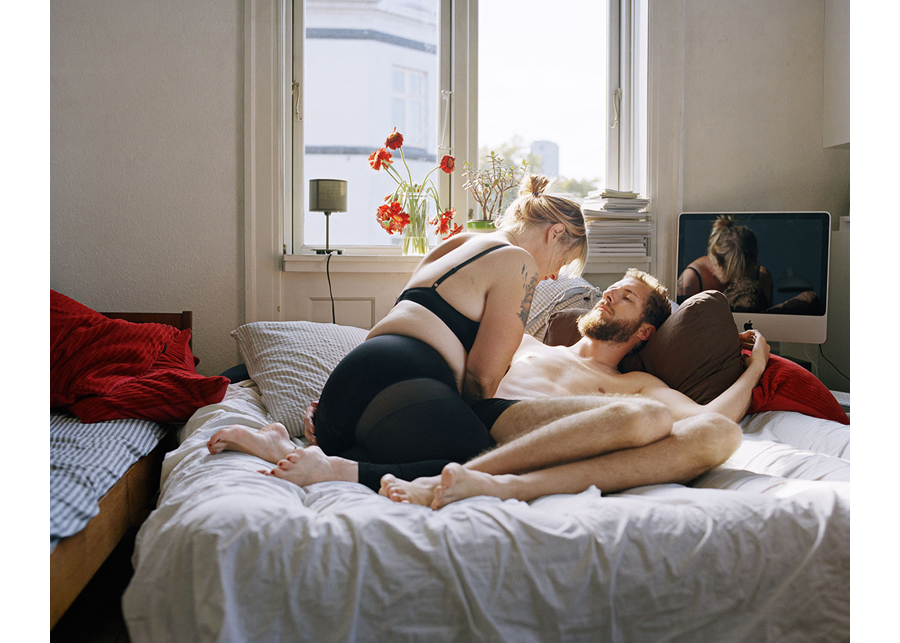 Image above: Untitled No. 57, 2014, by Jen Davis / courtesy of BAXTER ST at CCNY
Image above: Untitled No. 57, 2014, by Jen Davis / courtesy of BAXTER ST at CCNY
Tommy Kha on the other hand walks us through a more extensive and somewhat sporadic selection of images from his book. He charmingly shares his journey, with internal and external conflict towards his sexuality. His humorous visuals were heightened by his commentary on the tribulations and feats in his life. The Memphis native, turned to self-portraiture when he first moved to New York; when he found that the move had left him with a deficiency of friends to photograph. He began exploring the idea of shared frames, when he went out into the city and asked strangers to kiss him for a photograph. This notion caries through his later work featured in the book.
With a chuckle or two along the way, Tommy Kha begins to reveal more tender moments from A Real Imitation. He describes his feelings of otherness as a gay Asian growing up in Memphis. His childhood home features as “a secondary character" in his book, as well as his hometown in Memphis. After viewing Jen Davis’s work, it was easier for the audience to draw out the differences in their approach to self portraiture. Kha’s photographs often represent him in untraditional ways, through plants and shadows. He views these representations as “extensions of [his] body”. He pushed this concept of representation with a couple of photographs of what he refers to as “the disembodied head” - referring to images featuring his head is odd displacement within specific physical spaces. The photographs are threaded through with a gentle lighthearted nod to his multifaceted identity. His final slide, with an image of him, his mother and a picture he believes “represents the American dream” to his parents, stirs up some strong emotions. As Kha explains, his relationship to his mother is fragile and complex. With a homophobic mother, Kha fears that the photos of him and his mother may very well be his last depictions of their sweet relationship. “That’s all I get cause if mum found out there would be nothing left”.
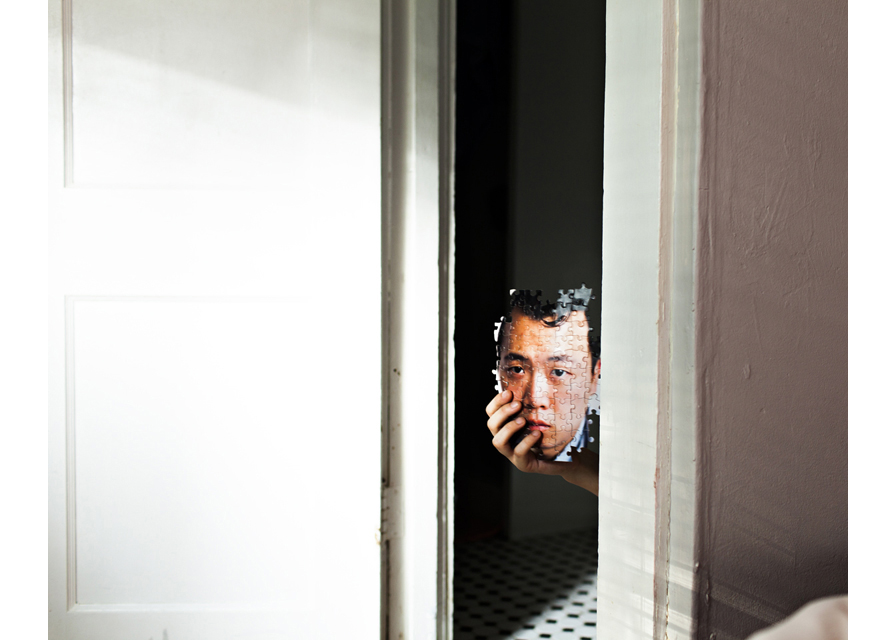 Image above: Mine (V), Memphis, Tennessee, 2015, by Tommy Kha / courtesy of BAXTER ST at CCNY
Image above: Mine (V), Memphis, Tennessee, 2015, by Tommy Kha / courtesy of BAXTER ST at CCNY
Both bodies of work, are touching in their own way, mainly because of the personal nature of self-portraiture. The two distinct photographers went on to discuss the personal approach to photography. In conversation, they both relate that when they started photographing themselves, they never thought the photos would make it to a public space. Davis particularly shares her the fear and apprehension she experienced when she first exhibited the work in a group show, titled Ego. The two of them discuss the natural association between self-portraiture and narcissism. Naturally the conversation leads to the inevitable selfie conversation. Davis shared a scene she witnessed on a train, where a woman noticed the light was hitting her and immediately thought to pull out her phone and capture an Amtrak selfie. “How great is it that she was able to read the light!”. Although both of them agree that despite their efforts, photographing themselves with their iPhones can be challenging after such an extensive collection of self-portraits, they both acknowledged the positive effects of selfie-taking.
Through the dialogue, it was established that there is value of self-portraiture in an era of selfies and oversharing. The event sparked bouts of inspiration, that likely encouraged young photographers in the room to turn the camera on themselves. Kha and Davis both prove, that self-portraiture still has the ability to be artful, dignified and intimate. We might be tired of selfies, but there’s still plenty of room for self-portraits.
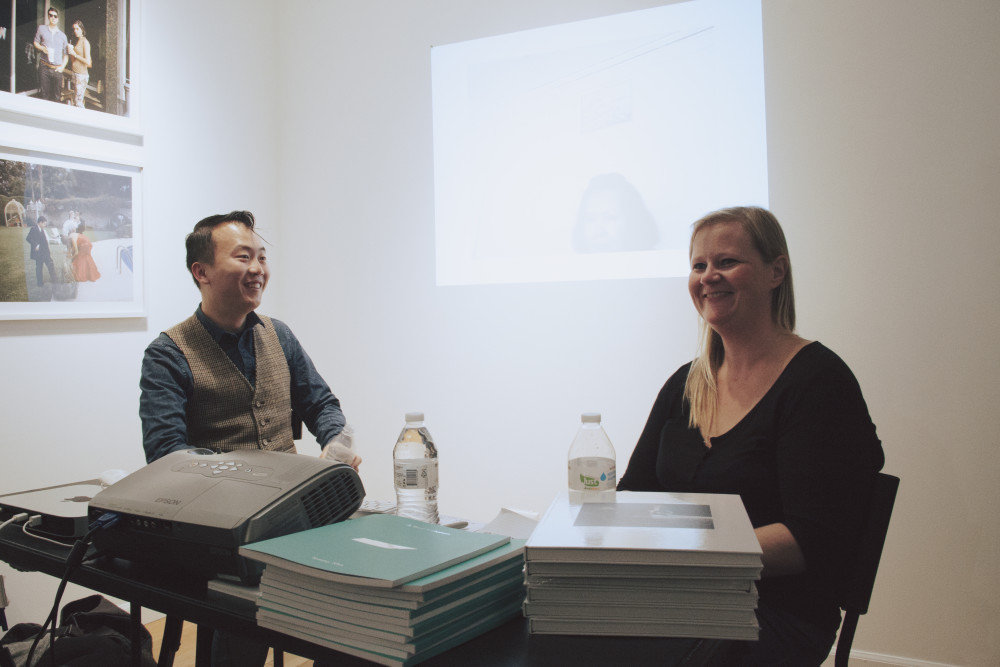 Image above: © Ashley Comer
Image above: © Ashley Comer



